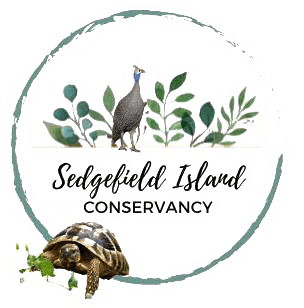Stuff Worth Knowing...
a.k.a. faq...
We hope to answer all your questions here but we know we can't think of everything, so please Contact Usif you can't find information here! We will get back to you (and possibly add your query to this list).
Pest Control, Poisons, Traps & Solutions
Rat poisons (rodenticides) are deadly to the animals that eat rats and mice, including owls, crows and your pet cat. Weed killers (herbicides) are poisonous to animals that eat plants or that feed on the bugs that live on the plants. Insecticides don't only kill the ants that we all love to hate, but they also kill other insects such as the pollinators that we rely on for our own survival.
That sounds terrible, but there are solutions. Please read our full study on environmentally friendly pest control.
Weed killers (herbicides) are poisonous to animals that eat plants or that feed on the bugs that live on the plants. This results in species loss in our gardens, making it more difficult to get good results from your planted flora.
That sounds terrible, but there are solutions. Please read our full study on environmentally friendly pest control.
Rat poisons (rodenticides) are deadly to the animals that eat rats and mice, including owls, crows and your pet cat. Rat and mouse traps seldom kill a rodent instantly and relatively painlessly. Rather, the animals suffer lingering and painful deaths.
That sounds terrible, but there are solutions that we can help with. Please read our full study on environmentally friendly pest control.
Humans tend to reach for the ant poison as soon as we see a row of ants in the kitchen. Unfortunately, insecticides don't only kill the ants that we all love to hate, but they also kill other insects such as the pollinators that we rely on for our own survival. We can not be certain that insecticides are harmless tohumans either: we sprayed DDT tokill mosquitos for decades before we discovered their role in birth defects.
That sounds terrible, but there are solutions. Please read our full study on environmentally friendly pest control.
Aliens, Invasives and how to Manage them
Lorem ipsum dolor sit amet,
Lorem ipsum dolor sit amet,
Port Jackson trees can be difficult to get rid of because, if not properly removed, they grow backwith renewed vigour and multiple stems.
If you have a young sapling, you can just pull it out. Carefully. Run your fingers down the stem and feel a slight thickening, on or just under the ground. Grip it tightlt below that thickening and pull it out. If you gripit higher up it snap at the thickening and it will regrow!
Bigger trees are best cut off as close tothe ground as possible and then poisoned with Kaput gel, thoroughly painted onto the fresh cut. Make sure you apply the Kaput immediately after cutting and ensure that the Kaput completely covers the area between the bark and the main wood of the trunk.
Or just call us to help you out.
Lorem ipsum dolor sit amet,
Lorem ipsum dolor sit amet,
Lorem ipsum dolor sit amet,
Tortoises on The Island
Have you checked our dedicated Tortoise pages? If not, you will find them here.
In short, you can't keep a tortoise as a pet. The longer answer isthat you can apply for a permit (from Cape Nature) but they are very unlikely to issue one unless you are a registered rehabilitation centre or something of that status. And, remember, keeping tortoises on your property without allowing them to move in and out is the same as keeping them as pets!
You have to train your dog to live with tortoises by showing the dog that tortoises are not for playing with or hunting.
It depends on the dog too. Upon meeting a tortoise for the first time, most dogs will try to chew on it and generally investigate. You should keep a watchful eye to prevent actual damage to the tortoise's shell. Small dogs, such as Yorkies, can't do much damage to an adult tortoise but all dogs can kill a baby tortoise.
Tortoises seem to be pretty intelligent about what they eat and will not easily get themselves poisoned by a plant. However, they will eat all the low-hanging leaves off a plant, so keep your smaller plants protected until they are well established.

Protecting our Natural environment whilst creating a better environment for people.
+27 (0)83 376 7846
Quick links
Follow us
Newsletter
Subscribe now to get our newsletter.
Created with © systeme.io




